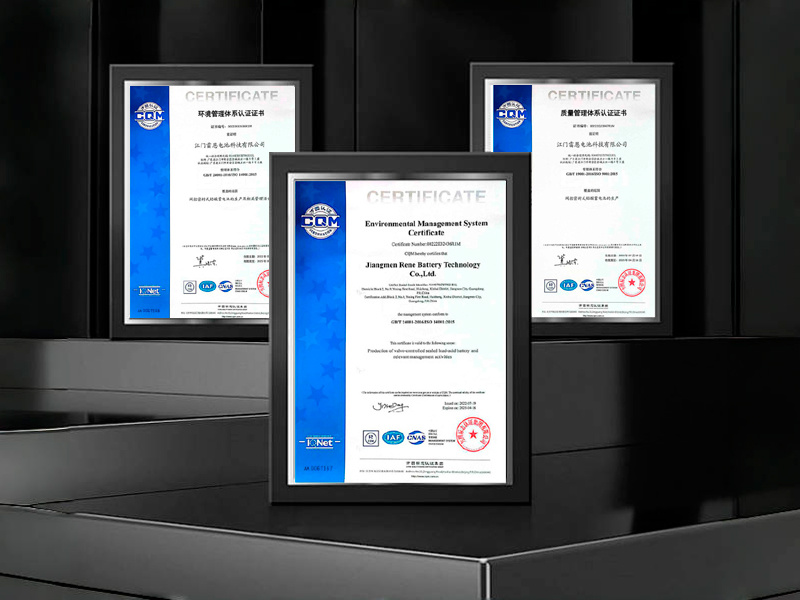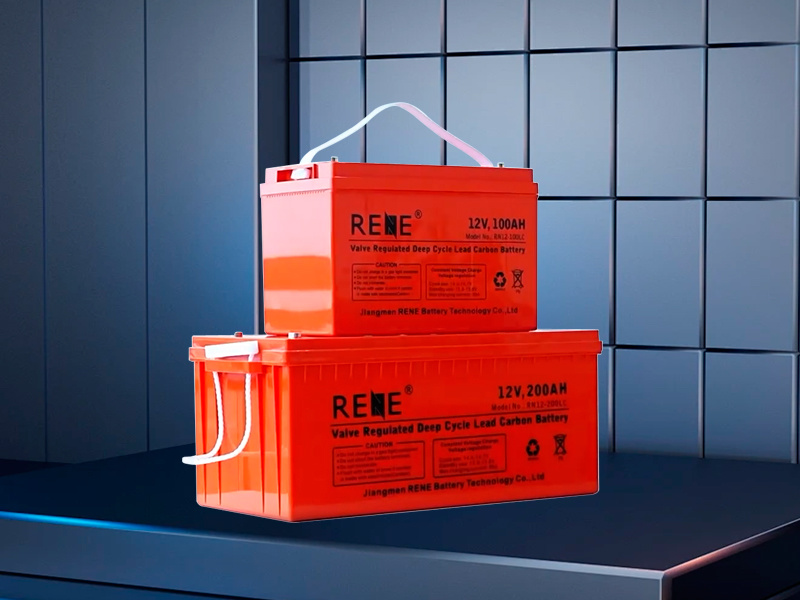Jiangmen Rene Battery Technology Co., Ltd.
Unlocking Longevity: The Benefits of Quality Lithium Deep Cycle Batteries
2025-07-06
Unlocking Longevity: The Benefits of Quality Lithium Deep Cycle Batteries Table of Contents 1. Introduction to Lithium Deep Cycle Batteries 2. What Are Lithium Deep Cycle Batteries? 3. Benefits of Lithium Deep Cycle Batteries 3.1 Longer Lifespan 3.2 Higher Efficiency 3.3 Lighter Weight 3.4 Faster Recharge 3.5 Safety

Unlocking Longevity: The Benefits of Quality Lithium Deep Cycle Batteries
Table of Contents
- 1. Introduction to Lithium Deep Cycle Batteries
- 2. What Are Lithium Deep Cycle Batteries?
- 3. Benefits of Lithium Deep Cycle Batteries
- 3.1 Longer Lifespan
- 3.2 Higher Efficiency
- 3.3 Lighter Weight
- 3.4 Faster Recharge
- 3.5 Safety and Reliability
- 4. Applications of Lithium Deep Cycle Batteries
- 5. Choosing the Right Lithium Deep Cycle Battery
- 6. Maintenance and Care for Longevity
- 7. Common Misconceptions About Lithium Batteries
- 8. Conclusion
- 9. FAQs
1. Introduction to Lithium Deep Cycle Batteries
In recent years, lithium deep cycle batteries have emerged as a leading choice for energy storage solutions across various industries. Their **superior performance**, **long lifespan**, and **increasing affordability** make them a desirable option for both personal and commercial applications. As we dive deeper into the world of lithium batteries, this article will explore their numerous benefits, applications, and how to choose the right one for your needs.
2. What Are Lithium Deep Cycle Batteries?
Lithium deep cycle batteries are rechargeable batteries designed to provide steady energy output over long periods. Unlike traditional lead-acid batteries, which can only deliver short bursts of energy, lithium batteries can be discharged and recharged many times without significant loss of capacity. They are particularly useful for applications requiring consistent power, such as electric vehicles, renewable energy systems, and various electronic devices.
3. Benefits of Lithium Deep Cycle Batteries
3.1 Longer Lifespan
One of the most compelling advantages of lithium deep cycle batteries is their **impressive lifespan**. While traditional lead-acid batteries typically last for 500 to 1,000 cycles, lithium batteries can endure anywhere from **2,000 to 5,000 cycles** or more. This extended lifespan translates into lower replacement costs and reduced environmental impact, making lithium batteries a more sustainable choice.
3.2 Higher Efficiency
Lithium deep cycle batteries exhibit higher energy efficiency compared to their lead-acid counterparts. They can reach a charge efficiency of up to **95%**, meaning that more of the energy stored is available for use. This increased efficiency not only saves money on energy costs but also enhances the performance of the devices and systems powered by these batteries.
3.3 Lighter Weight
Weight is a crucial factor in many applications, particularly in the automotive and marine industries. Lithium deep cycle batteries are significantly lighter than lead-acid batteries, making them easier to handle and install. Their **compact design** allows for better space utilization, especially in smaller vehicles or systems requiring optimal weight distribution.
3.4 Faster Recharge
Another noteworthy benefit of lithium deep cycle batteries is their rapid recharge time. These batteries can be fully charged in a matter of **hours**, compared to the longer charging times often associated with lead-acid batteries. This feature is particularly advantageous for applications where downtime needs to be minimized, such as in electric vehicles and off-grid renewable energy systems.
3.5 Safety and Reliability
Quality lithium deep cycle batteries are designed with advanced safety features, including built-in Battery Management Systems (BMS) that monitor and regulate parameters like voltage, temperature, and current. This ensures the battery operates within safe limits, reducing the risk of overheating or failure. Moreover, lithium batteries are less prone to corrosion, which enhances their reliability over time.
4. Applications of Lithium Deep Cycle Batteries
Lithium deep cycle batteries are versatile and find applications across various fields. Here are some key areas where these batteries excel:
1. **Electric Vehicles (EVs)**: As the automotive industry shifts towards electric propulsion, lithium batteries are at the forefront due to their lightweight and high-energy density.
2. **Renewable Energy Systems**: Solar and wind energy systems benefit from lithium batteries, which provide efficient energy storage solutions that ensure a reliable power supply during low generation periods.
3. **Marine Applications**: Lithium batteries are increasingly being used in marine vessels, providing reliable power for navigation, communication, and onboard systems while reducing weight.
4. **Recreational Vehicles (RVs)**: RVs utilize lithium batteries to power lights, appliances, and other electronics, allowing for longer stays in remote locations without the need for frequent recharging.
5. **Emergency Backup Systems**: These batteries serve as reliable backup solutions for homes and businesses, ensuring power continuity during outages.
5. Choosing the Right Lithium Deep Cycle Battery
Selecting the right lithium deep cycle battery involves considering several factors, including:
- **Capacity**: Measured in amp-hours (Ah), capacity determines how long the battery can power a device or system. Assess your energy needs to choose a battery with the appropriate capacity.
- **Voltage**: Ensure the battery's voltage matches your system requirements. Common voltages include 12V, 24V, and 48V.
- **Discharge Rate**: Consider the continuous and peak discharge rates to ensure the battery can supply the necessary power for your application.
- **Brand and Warranty**: Opt for reputable brands that offer warranties, as this indicates confidence in their product's quality and reliability.
6. Maintenance and Care for Longevity
To maximize the lifespan and performance of lithium deep cycle batteries, proper maintenance is essential:
- **Regular Monitoring**: Keep an eye on the battery's state of charge (SoC) and ensure it remains within the recommended limits.
- **Temperature Control**: Avoid exposing batteries to extreme temperatures, as this can affect performance and longevity.
- **Clean Terminals**: Regularly inspect and clean battery terminals to prevent corrosion and ensure good electrical connections.
- **Follow Charging Guidelines**: Use appropriate chargers and follow manufacturer guidelines to maintain optimal charging practices.
7. Common Misconceptions About Lithium Batteries
Despite their advantages, several misconceptions about lithium deep cycle batteries persist:
- **They Are Expensive**: While the initial investment may be higher than lead-acid batteries, the long-term savings due to their lifespan and efficiency often outweigh the upfront costs.
- **They Are Dangerous**: Quality lithium batteries undergo rigorous testing and feature built-in safety mechanisms to prevent overheating and failure.
- **They Require Special Chargers**: While lithium batteries do require specific charging protocols, modern chargers often come equipped with settings for lithium batteries, simplifying the charging process.
8. Conclusion
Quality lithium deep cycle batteries unlock unparalleled longevity and efficiency, making them the go-to choice for various applications in today's energy-driven world. Their longer lifespan, higher efficiency, lighter weight, and safety features provide significant advantages over traditional lead-acid batteries. As you consider transitioning to lithium technology, be sure to evaluate your specific energy needs and choose a battery that best meets those requirements. By investing in quality lithium deep cycle batteries, you can enhance your energy solutions while contributing to a more sustainable future.
9. FAQs
1. How long do lithium deep cycle batteries last?
Lithium deep cycle batteries typically last between 2,000 and 5,000 cycles, depending on usage and maintenance.
2. Are lithium batteries safer than lead-acid batteries?
Yes, quality lithium batteries incorporate advanced safety features and are generally less prone to failure and corrosion compared to lead-acid batteries.
3. Can I use a regular charger for lithium batteries?
It's essential to use a charger designed for lithium batteries to ensure proper charging and prevent damage.
4. How do I know the right capacity for my needs?
Assess your energy requirements by calculating the total watt-hours needed for your devices, and choose a battery with a capacity that meets or exceeds that demand.
5. What maintenance do lithium batteries require?
Regular monitoring of the state of charge, temperature control, terminal cleaning, and following proper charging practices can enhance the lifespan and performance of lithium batteries.
Key words:
Previous Page:














